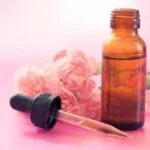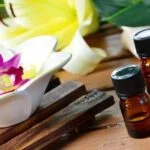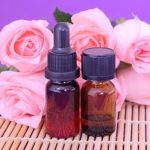Are homeopathic medicines another form of aromatherapy? In this article, we will delve into the world of homeopathy and aromatherapy to understand the similarities and differences between these two holistic healing practices. Homeopathic medicines have been gaining popularity in recent years, while aromatherapy has long been used as a natural remedy for various ailments. Understanding the unique characteristics of each practice is crucial in determining their role in holistic healing.
Homeopathic medicines are based on the principle of “like cures like,” where a substance that causes symptoms in a healthy person is used to treat similar symptoms in an ill person. On the other hand, aromatherapy involves using essential oils from plants to improve physical, emotional, and spiritual well-being. Both practices are rooted in natural remedies but differ significantly in their approach and application.
In this article, we will explore the science behind homeopathic medicines and aromatherapy, debunking myths and misconceptions along the way. Additionally, we will discuss the importance of consulting a professional when considering homeopathic or aromatherapy treatments for optimal results. Join us as we unravel the intricate world of homeopathy and aromatherapy to gain a deeper understanding of their unique roles in holistic healing.
Understanding Homeopathic Medicines
Homeopathic medicines, also known as homeopathy, are a form of alternative medicine that utilizes highly diluted substances to treat various ailments. The fundamental principle of homeopathy is “like treats like,” meaning that a substance that causes symptoms in a healthy person can be used to treat similar symptoms in a sick person when highly diluted.
The practice was developed in the late 18th century by German physician Samuel Hahnemann and has since gained popularity as a holistic approach to health and wellness.
The process of preparing homeopathic medicines involves repeatedly diluting the original substance with shaking or succussion after each dilution. This is based on the belief that the more dilute a substance is, the more potent it becomes.
Proponents of homeopathy claim that this method enhances the body’s ability to heal itself and can address a wide range of physical, emotional, and mental symptoms. However, critics argue that the extreme dilution renders homeopathic medicines essentially just water with no active ingredients.
Despite its controversial nature, many people turn to homeopathic medicines as an alternative or complement to conventional treatments. Practitioners often recommend individualized remedies based on the specific symptoms and overall health of their patients, emphasizing a personalized approach to healing. While scientific evidence supporting the efficacy of homeopathy remains inconclusive, its popularity continues to grow worldwide as part of the larger holistic healing movement.
| Homeopathic Medicines | Aromatherapy |
|---|---|
| Highly diluted substances | Uses essential oils |
| Like treats like principle | Based on inhaling or absorbing aromatic compounds |
| Developed by Samuel Hahnemann in late 18th century | Practices date back to ancient civilizations such as Egypt, Greece, Rome, China, and India. |
Exploring Aromatherapy
Aromatherapy is a holistic healing treatment that uses natural plant extracts to promote health and well-being. The practice dates back to ancient civilizations, where essential oils were used for their therapeutic properties. Aromatherapy can be administered through inhalation or topical application, and different essential oils are used to address various physical and emotional concerns.
What It Is
Aromatherapy involves the use of essential oils derived from plants to improve physical and emotional well-being. These natural oils can be inhaled directly or indirectly, or they can be applied to the skin through massage, lotions, or bath products. Each essential oil has its own unique properties and benefits, and they can be used individually or blended together to create a harmonious aroma that promotes overall wellness.
Its Benefits
Aromatherapy is widely known for its potential to reduce stress, anxiety, and depression. Certain essential oils have been found to have calming and mood-lifting effects when inhaled or used during a massage. Aromatherapy is also believed to alleviate physical ailments such as headaches, muscle pain, digestive issues, and insomnia. Additionally, some essential oils have antibacterial and anti-inflammatory properties that can support the body’s immune system.
Overall, aromatherapy offers a natural way to enhance both physical and mental health. Its wide range of potential benefits makes it a valuable complement to traditional medicine in promoting holistic wellness. As with any form of alternative therapy, it’s important to consult with a professional before incorporating aromatherapy into your wellness routine.
The Differences Between Homeopathy and Aromatherapy
This means that a substance which causes symptoms when taken in large doses can be used in small amounts to treat those same symptoms. On the other hand, aromatherapy utilizes essential oils and their aromatic compounds to improve psychological or physical well-being.
One key difference between homeopathy and aromatherapy lies in their mode of administration. Homeopathic medicines are typically administered in the form of pills or liquid dilutions, which are taken orally. In contrast, aromatherapy primarily involves inhaling essential oils, applying them topically on the skin, or using them in massage. These essential oils can also be added to bathwater or used in diffusers to create a pleasant aroma.
Another significant distinction is their underlying philosophy. Homeopathy is based on the idea that “like cures like” and heavily relies on dilution principles for its effectiveness, while aromatherapy is rooted in using naturally extracted aromatic essences from plants to promote healing and well-being. Although both embrace the concept of natural remedies, their approaches to treatment differ fundamentally.
Finally, an important difference lies in how these two practices work with existing medical treatments. While homeopathic medicines can be used alongside conventional medical treatments, especially because they do not contain pharmacologically active ingredients that could interfere with the action of conventional drugs, aromatherapy is often considered a complementary practice that may enhance regular medical treatments rather than serve as an alternative form of treatment on its own.
| Homeopathic Medicines | Aromatherapy |
|---|---|
| Based on the principle of treating “like with like.” | Utilizes essential oils and their aromatic compounds. |
| Administered orally through pills or liquid dilutions. | Involves inhaling essential oils or topical application. |
The Similarities Between Homeopathy and Aromatherapy
When it comes to holistic healing, homeopathic medicines and aromatherapy share some similarities in their approach to treating health issues. Both practices focus on using natural remedies to promote wellness and balance within the body. Here are some of the key similarities between homeopathy and aromatherapy:
- Natural Remedies: Both homeopathic medicines and aromatherapy utilize natural substances in their treatments. Homeopathy uses highly diluted forms of plants, minerals, or animal products, while aromatherapy uses essential oils extracted from plants.
- Holistic Approach: Both practices take a holistic approach to healing, considering the physical, mental, emotional, and spiritual aspects of a person’s well-being. Rather than simply treating symptoms, both homeopathy and aromatherapy aim to address the underlying causes of illness.
Furthermore, both homeopathic medicines and aromatherapy emphasize the individualized nature of treatment. In homeopathy, the choice of remedy is based on a person’s unique symptoms and constitution. Similarly, in aromatherapy, essential oil blends are often customized to suit an individual’s specific needs and preferences.
Ultimately, while there are distinct differences between homeopathy and aromatherapy, it is important to recognize that they share common ground in their natural approach to healing and their dedication to promoting overall wellness. Both practices have been used for centuries and continue to play a significant role in complementary and alternative medicine.
Debunking the Myths
When it comes to alternative forms of medicine, there is often confusion surrounding the differences and similarities between homeopathic medicines and aromatherapy. Both are considered natural remedies, but they differ significantly in their principles and methods of use.
Homeopathic medicines are based on the principle that “like cures like,” meaning a substance that causes symptoms in a healthy person can be used to treat similar symptoms in a sick person. These medicines are highly diluted and prepared through a process of succussion, which involves vigorous shaking. They are often prescribed based on individualized symptoms, with the goal of stimulating the body’s natural healing mechanisms.
On the other hand, aromatherapy uses essential oils extracted from plants to promote physical and psychological well-being. These oils can be inhaled, applied topically, or used in massage or bath treatments. Aromatherapists believe that the unique properties of each essential oil can have therapeutic effects on the body and mind.
Despite their differences, there might be some overlap between homeopathic medicines and aromatherapy for certain conditions. For example, both approaches may address issues related to stress, anxiety, sleep disorders, or digestive problems using different methods. However, it’s important to recognize that they are distinct modalities with their own set of principles and practices.
Exploring the Science Behind Homeopathic Medicines and Aromatherapy
Understanding the Science of Homeopathic Medicines
The science behind homeopathic medicines is based on the concept of “like cures like” and the use of highly diluted substances to stimulate the body’s natural healing processes. Proponents of homeopathy believe that these highly diluted remedies retain a “memory” of the original substance, which can then trigger a healing response in the body.
However, many mainstream medical experts argue that there is no scientific evidence to support these claims and that homeopathic remedies are essentially just water or sugar pills.
The Science Behind Aromatherapy
Aromatherapy, on the other hand, is based on the use of essential oils derived from plants to promote physical and psychological well-being. The science behind aromatherapy lies in the olfactory system and its ability to affect mood and emotion. When inhaled, the aroma molecules from essential oils can interact with receptors in the nose, sending signals to the brain which can have a calming, energizing, or balancing effect on the body.
Comparing the Scientific Evidence
When it comes to scientific evidence, aromatherapy has been more widely studied and accepted within mainstream medicine compared to homeopathy. There have been numerous studies demonstrating the benefits of specific essential oils for stress reduction, pain relief, improved sleep, and mood enhancement. On the other hand, research on homeopathic medicines has produced conflicting results with many studies showing little to no difference between homeopathic remedies and a placebo.
The Importance of Consulting a Professional for Homeopathic and Aromatherapy Treatments
Homeopathic medicines and aromatherapy are alternative forms of medicine that have gained popularity in recent years as people seek holistic and natural remedies for their health concerns. While these treatments can be beneficial, it is important to recognize the importance of consulting a professional before using them.
Both homeopathic medicines and aromatherapy involve the use of potent substances that could have potential side effects or interactions with other medications. Therefore, seeking guidance from a qualified practitioner is crucial to ensure safe and effective treatment.
When it comes to homeopathic medicines, a trained homeopath can conduct a thorough assessment of an individual’s physical, emotional, and mental state to prescribe the appropriate remedy. Since homeopathy involves highly diluted substances, it is essential to consult with a knowledgeable professional who can provide personalized treatment based on the individual’s unique symptoms and overall well-being. This personalized approach ensures that the right remedy is chosen for the specific health concerns of the patient.
Similarly, aromatherapy should be approached with caution and under the guidance of a qualified practitioner. Aromatherapists are trained in the use of essential oils for various purposes such as relaxation, stress relief, pain management, and skincare. They can recommend the suitable essential oils for specific conditions and provide instructions on how to use them safely.
Additionally, they can advise on potential contraindications or adverse reactions that may occur when using essential oils, especially for individuals with allergies or sensitivities. Consulting an aromatherapist ensures that individuals can harness the benefits of aromatherapy while minimizing any potential risks.
Conclusion
In conclusion, homeopathic medicines and aromatherapy play unique and distinct roles in holistic healing. While both are considered alternative forms of medicine, they operate on different principles and have different mechanisms of action. Homeopathy involves the use of highly diluted substances to stimulate the body’s natural healing processes, while aromatherapy utilizes essential oils to promote physical and psychological well-being through the sense of smell.
It is important for individuals to understand that while homeopathic medicines and aromatherapy may have some similarities in their holistic approach to healing, they should not be seen as interchangeable or synonymous with each other. Each modality has its own specific uses and benefits, and consulting a professional practitioner is crucial for receiving personalized and effective treatment.
Ultimately, whether one chooses homeopathic medicines or aromatherapy as part of their holistic health regimen, it is essential to approach these treatments with an open mind and a willingness to learn about their unique contributions to overall well-being. By understanding the differences and similarities between these two modalities, individuals can make informed decisions about incorporating them into their wellness routine.
Both homeopathy and aromatherapy offer valuable tools for promoting balance in the mind, body, and spirit, contributing to a more comprehensive approach to health and healing.
Frequently Asked Questions
What Type of Alternative Medicine Is Aromatherapy?
Aromatherapy is a type of alternative medicine that uses essential oils and aromatic compounds to improve a person’s physical, emotional, and spiritual well-being. This practice involves inhaling or applying these natural oils to the skin.
What Is Homeopathy Also Known As?
Homeopathy is also known as homeopathic medicine. It is a holistic system of alternative medicine that was developed in the late 18th century. Homeopathy is based on the concept of treating “like with like” and uses highly diluted substances to stimulate the body’s natural healing processes.
Is Homeopathy a Vibrational Medicine?
Yes, homeopathy is considered a form of vibrational medicine. This means that it focuses on the energy imbalances in the body and uses highly diluted substances or remedies to address these imbalances at a vibrational level. The belief is that these remedies can trigger the body’s self-healing mechanism.

Are you looking for a natural way to improve your health and wellbeing?
If so, aromatherapy may be the answer for you.




